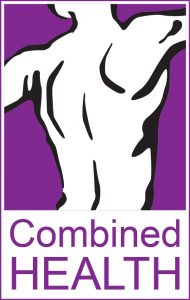APA Acupuncture and Dry Needling Conference 2015
 The ADNG conference will be held along with the Sports Physiotherapy Conference and the Musculoskeletal Physiotherapy Conference in October 2015 on the Gold Coast.
The ADNG conference will be held along with the Sports Physiotherapy Conference and the Musculoskeletal Physiotherapy Conference in October 2015 on the Gold Coast.
Leigh McCutcheon will be presenting to the Acupuncture and Dry Needling Group the latest evidence base for needling therapies. Presently approximately 40% of practicing physiotherapists hold additional training in acupuncture and/or dry needling. Evidence in the form of RCTs and case series is substantial in regards to acupuncture with over 20,000 published articles evidenced on Medline, however research in the area of dry needling is lacking and to date less than 200 articles exist on Medline. Subsequently systematic reviews and meta-analyses are more likely to be associated with research relating to traditional or western acupuncture rather than dry needling. Presently the use of acupuncture and dry needling for migraine, tension type headache, chronic LBP, TMD (temporomandibular disorder), adhesive capsulitis, fibromyalgia, depression and dysmenorrhoea have moderate support at systematic review and meta-analysis levels. There is however mixed evidence in the areas of Whiplash Associated Disorder, knee OA, lateral epicondylgia, peripheral joint OA and rotator cuff disorders. The research that exists will be presented and the role of acupuncture and dry needling in a multimodal treatment approach will be expanded upon. The presentation will have implications for physiotherapists working in Musculoskeletal Physiotherapy, Sports, Neurology, Women’s Health and Pain Rehabilitation.
Leigh will also present to the Pain Group research that underpins the neurophysiology of acupuncture and dry needling in relation to the neuropathic patient. Clinical reasoning for the use of acupuncture and dry needling relies on both animal and human research and in more recent years includes functional MRI (fMRI) research to consider the neurophysiological effects which occur at local, segmental and extra-segmental levels. In particular when considering acupuncture as a treatment modality for the neuropathic pain population research highlights reduced glutamate release and NMDA channel down regulation, long term depression of the dorsal horn, and forebrain and limbic system deactivation. Additionally acupuncture has been shown to have a synergistic relationship with tricyclic antidepressants (TCAs) which may be beneficial when treating neuropathic pain and depression. In contrast and worthy of note is the fMRI research which shows that aggressive styles of dry needling (pecking release styles) should be avoided in neuropathic patients due to activation of forebrain centres and the limbic system. Other recent fMRI research will also be considered along with the latest RCTs in relation to conditions that occur within the chronic pain population.
Other key note speakers will include Jenny Longbottom, from the UK, Peter Selvaratnam and Philip Gabel. The Acupuncture and Dry Needling Group’s program sits in and around the 4 day APA conference.
